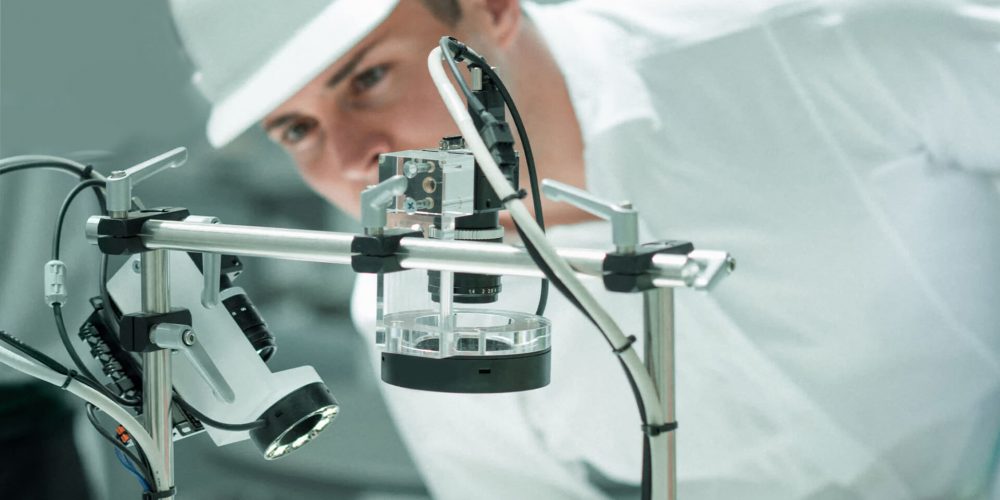Adult Social Care

The concept of adult social care covers a variety of systems centred around assisting elderly individuals or those living with a disability or physical or mental illness to stay safe and live with optimal independence and freedom. Innovation in this field is needed now more than ever as an ageing global population drives heightened demand for care facilities. Whilst huge amounts of innovative technology, systems and processes have been pioneered over the last decade, the challenge remains in finding a way to scale up models of service to bring the standard of care in line with contemporary demand.
Deployment of Robotics in Adult Social Care
Physically Assistive Robots (PARs) – Developed to perform discreet tasks including lifting and carrying to support those in need of health care services. Capable of being designed to work independently of the care worker or to support them in undertaking physical tasks associated with performing the role.
Socially Assistive Robots (SARs) – Aims to endow robots with the ability to help people through individual, non-contact assistance and in training, rehabilitation and education.
Cognitive Assistive Robots (CARs)– Help those with Dementia, Alzheimer’s and other cognitive impairments to perform cognitive tasks.
The rapid improvement of technology and the elderly population projections have driven transformation of this technology leading to fruitful investment opportunities in this sector. Robots can generate, analyse, decipher and feed back crucial information leaving all parties more informed about a patient’s care status.
Artificial intelligence is being implemented in care coordination aids and chat bots which aim to support social care employers in making efficiency and logistical improvements to care provision whilst simultaneously maintaining communication between the social care employees, patients and family members.
Smart sensors in homes, medical smart devices and telemedicine robots are creating huge data sets which can be harnessed by artificial intelligence and machine learning to allow providers to ensure care plans are regularly updated to adapt to the changing needs of individuals. Handheld devices offer staff the ability to update care and medication requirements in real time offering staff and managers a broader picture of each residents’ care and health. Relatives are also able to log in from a distance to gain a greater understanding of how their family member is and what care plan they are on.
Global Luxury Care Facilities
With domestic care homes and retirement facilities facing greater demand and reduced funding, elderly populations and their families are turning towards luxury facilities abroad which are often cheaper and offer a much better standard of care. One such facility is the award winning, 4-star care resort in Chiang Mai which provides both independent living with care and close care in a beautiful part of Thailand. Equipped with a range of accommodation styles, swimming pools, sauna, fitness rooms and a library, the luxury resort offers a fresh outlook on adult social care.
In addition, a development in Phuket features a dedicated retirement village in a stunning beachfront location with a host of first class facilities and world class care offerings. As the popularity of world class retirement villages increases along with the option for families to send their elderly relatives abroad for cheaper and better care in a sunnier location, the time to invest is now.
Opportunities to Invest
Greater investment into effective and appropriate technology is likely to be perpetuated by the growing dialogue between technology companies, social care employees and those who use care services. In turn, robotics and AI deployment is likely to grow across the care sector. Students and those training in social care can also harness technology to enhance their learning capabilities as well as exploring ways in which technology can be deployed in the future to improve standards of care.
Cloud computing also allows providers to re-allocate budgets and ensure security of patient data allowing more responsive and agile care. Greater innovation and implementation of tech can lead to streamlining of operations and huge cost savings therefore opening up diverse investment opportunities to bring the global care system up to date with technological changes in business and leisure.
Digitalisation of care can lead to:
- Ensuring better use of data to improve the interoperability of systems which would enable greater data sharing across systems, organisations and sectors.
- Increasing capacity across a system which can be made more efficient.
- Patients can have greater freedom to manage their care independently and utilise technology to enhance quality of life.
More recently, the Covid-19 pandemic has accelerated the momentum of digital transformation within health and social care:
- Social media channels have been harnessed to provide information, advice and guidance to patients which has fuelled awareness of digital alternatives to traditional ways of working.
- Rules around data governance have been temporarily relaxed which have previously been considered barriers to faster roll out of digital approaches.
- The UK Government recently launched £500 million grant to encourage tech firms to find innovative solutions to support vulnerable people who need help during Covid-19.
- Care homes have used a Capacity Tracker which is an online tool used to support patient discharges.
- Social Care Providers have been able to safely communicate with NHS and Councils through NHSmail.
Contact our team, who can help you:
- Set up your business
- Find an existing business looking for investment
- Find the right talent and partnerships
- Grow and develop your business
Our dedicated advisors will assist with:
- Connecting the entrepreneur with businesses to help set up the business plan
- Negotiate the terms of investment and close the deal
- Assist in compliance with UK Home Office Guidelines for innovation, viability and scalability
- Preparation of a due diligence report to support the endorsement application
- Providing real time estimates of turnover and profit
- Introducing improvements to data sources producing a more coherent measure of business activity.
- Model your valuation and decide how much equity to give away
- A dedicated lawyer to advise on the investment contracts
- Preparation of your business plan
- Opening a UL bank account and investment account
- Residential property purchases
- Applications for SEIS & EIS advance assurance
- Help you avoid common mistakes




